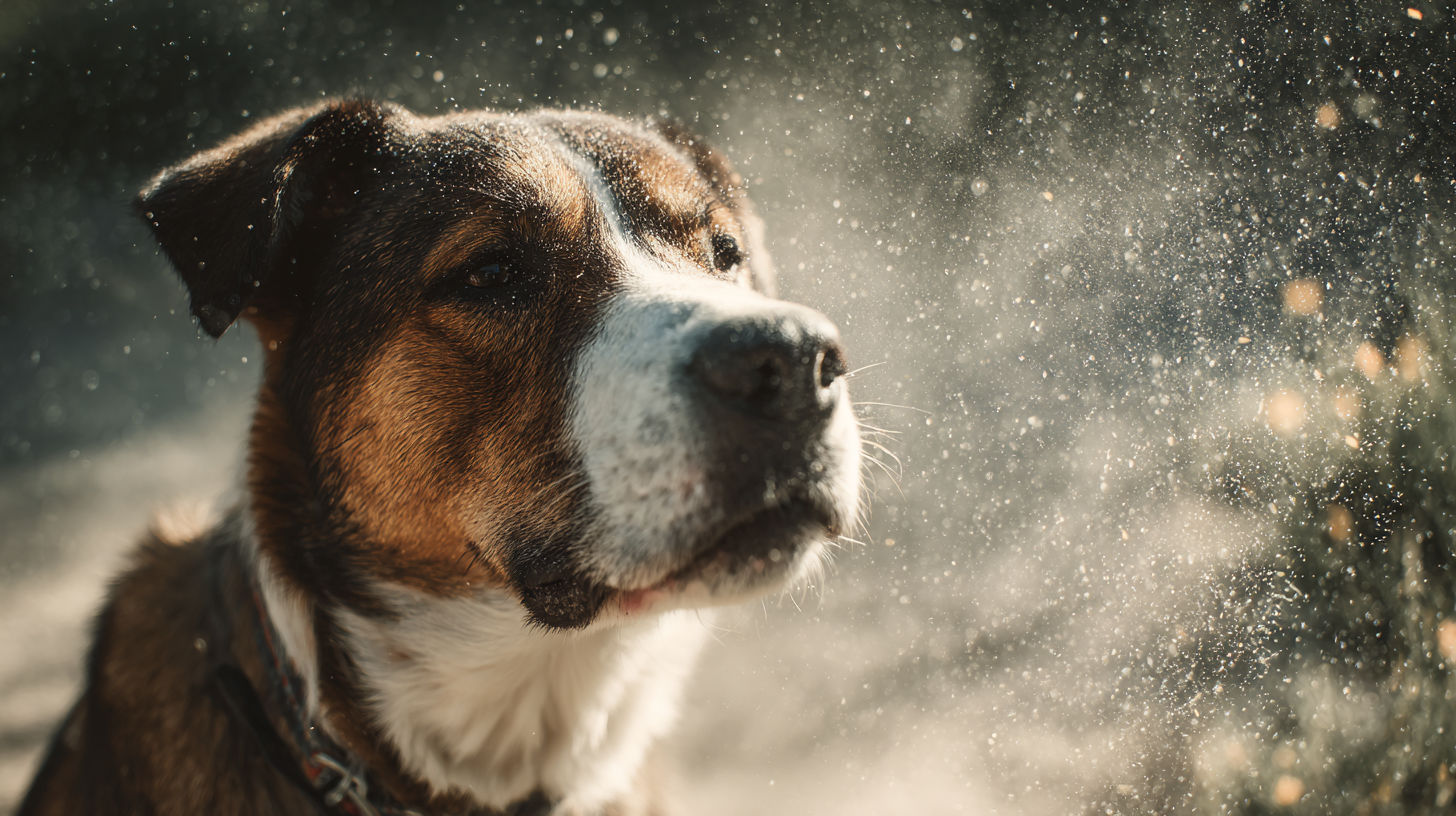My Dog Sneezes a Lot! Allergy or Respiratory Disease? 🐶🤧
If you’ve noticed your dog sneezing frequently, you might be wondering whether it’s just a harmless allergy or something more serious like a respiratory disease. Approximately 10-20% of dogs suffer from allergies that lead to frequent sneezing. On the other hand, canine respiratory issues—including conditions like Bordetella (kennel cough) and pneumonia—cause sneezing in about 5-15% of cases. Understanding the differences between these causes is crucial for maintaining your pup’s health. In this post, I’ll share insights on dog sneezing causes, symptoms to watch for, and when to seek veterinary help to ensure your furry friend stays happy and healthy. 😊
Understanding Dog Sneezing and Its Causes
Dog sneezing is a common behavior that often indicates an underlying issue. Normal sneezing typically occurs 1-5 times per day and is usually harmless, often related to environmental irritants. However, when sneezing exceeds five times daily or is persistent, it warrants closer attention. About 50-60% of dog sneezing episodes are caused by environmental factors such as pollen, dust mites, and mold. Pollen accounts for roughly 70% of allergies causing sneezing, while dust mites contribute 20-30%, and mold around 10-20%. These allergens can trigger canine allergies that manifest with sneezing, nasal discharge, and itching. Chronic dog sneezing related to allergies can also develop into more serious issues, including respiratory problems like nasal inflammation or infections. Furthermore, some breeds are more prone to allergies, making it essential for owners to monitor for signs of allergic reactions in dogs.

Signs of Respiratory Disease in Dogs
While allergies are common, respiratory diseases in dogs also cause sneezing and can be more serious. Conditions like Bordetella are responsible for 30-50% of respiratory disease-related sneezing. Symptoms often include persistent sneezing, coughing, nasal discharge, labored breathing, or even wheezing. About 20-40% of dogs with allergies can develop secondary respiratory issues like nasal infections or pneumonia. Recognizing signs early can significantly impact treatment success. If your dog is sneezing more than 5 times a day, especially with other symptoms like coughing or difficulty breathing, it’s crucial to consult your vet promptly. Common dog respiratory problems, such as sinus infections or respiratory infections, require tailored treatments to prevent complications. Pet owners should be aware of these signs and seek veterinary advice when needed.
Diagnosing the Cause of Sneezing in Dogs
Determining whether your dog’s sneezing is caused by allergies or respiratory disease involves some observation and vet assessments. The vet will consider the frequency, duration, and accompanying symptoms such as nasal discharge, coughing, or lethargy. Diagnostic tests like allergy testing, nasal swabs, or chest X-rays may be necessary. Knowing the specific cause will guide effective treatment strategies, whether they involve antihistamines for allergies or antibiotics for infections. Sometimes, environmental modifications like reducing exposure to pollen or dust can significantly alleviate sneezing episodes. A comprehensive approach ensures your dog gets the proper care and relief from their sneezing fits.
How to Help Your Dog with Sneezing and Breathing Problems
If your dog is experiencing sneezing or breathing difficulties, here are some practical tips. First, keep your home clean and free of dust and mold. Use air purifiers and regularly wash bedding to reduce allergens. Limit outdoor walks during high pollen seasons or when allergen levels are high. If your dog’s sneezing is persistent or severe, schedule a vet visit for proper diagnosis and treatment. Your vet may recommend allergy medications, nasal sprays, or specific therapies to manage symptoms. Additionally, maintaining a healthy immune system through proper nutrition and regular checkups can reduce overall dog health issues. Remember, early intervention can prevent chronic problems and improve your dog’s quality of life. 🐾
Summary and Takeaway
In summary, frequent sneezing in dogs can be due to allergens or respiratory diseases. Understanding the key differences, recognizing symptoms, and knowing when to seek veterinary help is vital for your dog’s well-being. While environmental allergies are quite common and often manageable with lifestyle adjustments and medications, respiratory diseases can be more serious and require prompt treatment. Monitoring your dog’s sneezing pattern, accompanying symptoms, and overall health will help you make informed decisions. Keep an eye out for signs of chronic sneezing or breathing problems and consult your vet if you’re concerned. Your attentive care can make all the difference in keeping your furry friend healthy and comfortable. 🐶💖
FAQs: Common Questions About Dog Sneezing
- What are the main causes of dog sneezing? Dog sneezing can be caused by allergies, respiratory infections, foreign objects, or irritants like dust and pollen.
- How do I know if my dog has allergies? Signs include frequent sneezing, itching, nasal discharge, and sometimes skin rashes. Allergy testing can confirm the cause.
- When should I see a vet about my dog’s sneezing? If your dog sneezes more than 5 times a day, has difficulty breathing, coughing, or shows other signs of illness, consult your vet promptly.
- Are there natural remedies for dog sneezing? Keeping your environment clean, reducing allergens, and providing a healthy diet can help, but always consult your vet before trying remedies.
- Can allergies cause chronic dog sneezing? Yes, persistent allergies can lead to chronic sneezing and other respiratory issues if not properly managed.
Understanding whether your dog’s sneezing is due to allergies or respiratory problems is essential for effective treatment and comfort. Remember, early action and proper vet care can prevent long-term health issues and ensure your dog remains happy and healthy. If you have any concerns or questions, don’t hesitate to reach out to your veterinarian for expert advice. 😊🐾